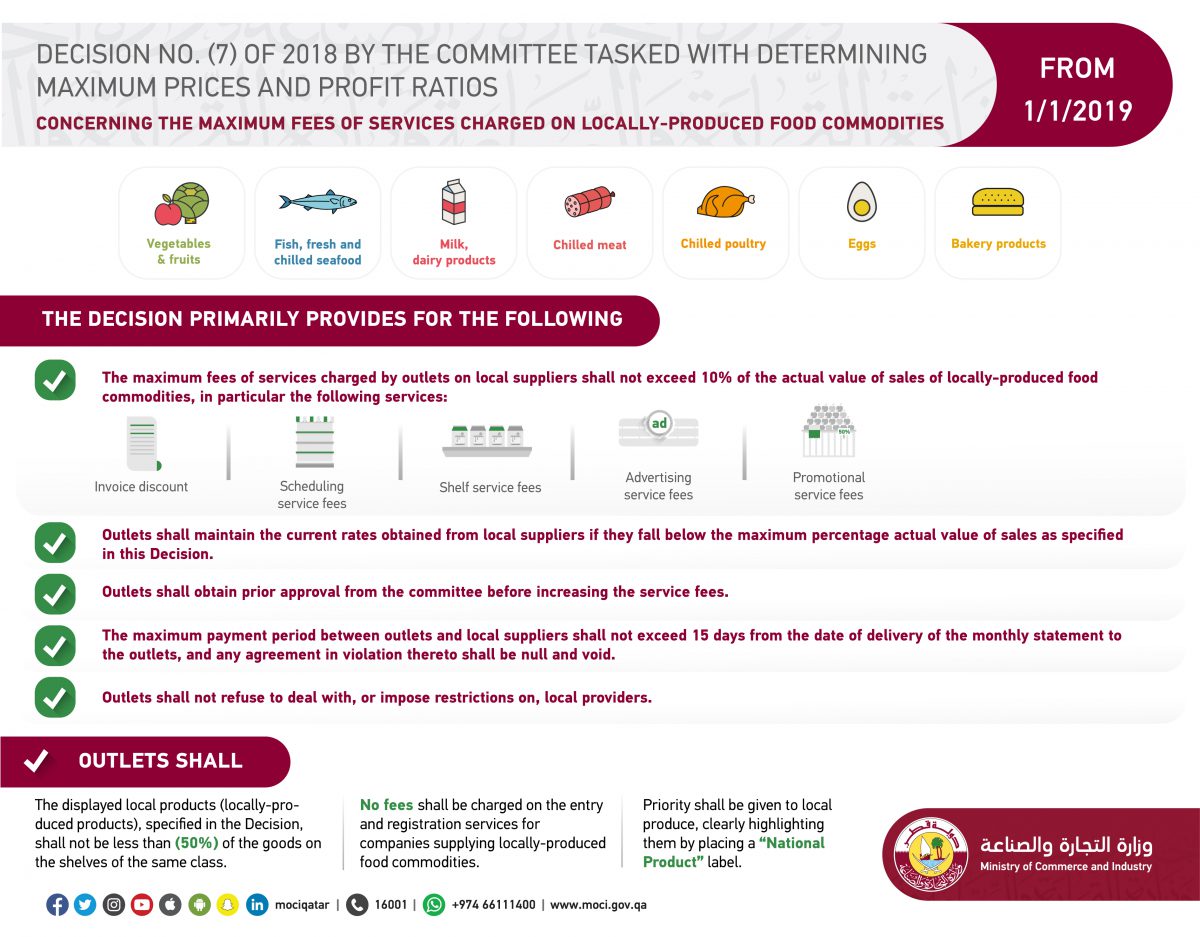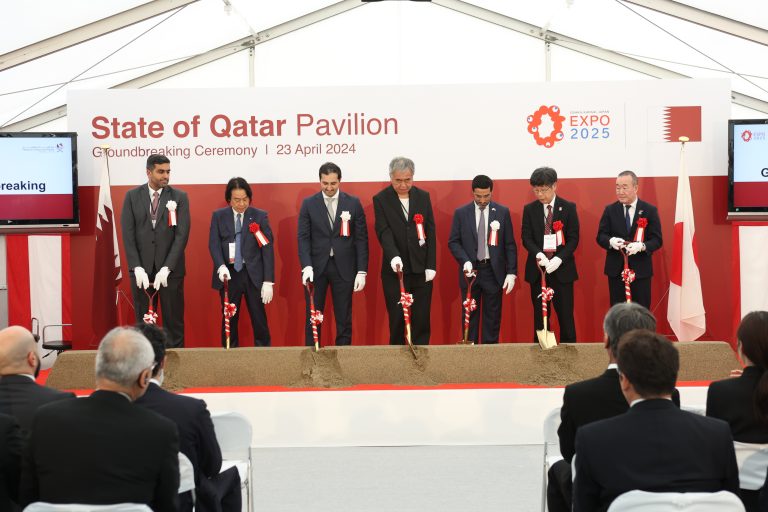
The decision is part of the Ministry’s efforts to regulate markets and support national products
- This decision shall apply to fees charged by outlets for services to local suppliers of locally produced food commodities: vegetables, fruits, fish, fresh and chilled seafood, chilled meat, chilled poultry, eggs, milk, dairy products and bakery products.
- The maximum fees for services charged by outlets to local suppliers shall not exceed 10% of the actual value of sales of the locally produced food commodities.
- Outlets shall obtain prior approval from the committee before increasing service fees.
- The maximum payment period for fees between outlets and local suppliers shall not exceed 15 days from the date of delivery of the monthly statement to the outlets.
- Outlets shall not, by any means, coerce suppliers or other parties to obtain service fees or payment periods, or impose discriminatory conditions in violation of the provisions of the decision.
The Ministry of Commerce and Industry has unveiled Decision No. (7) by the committee tasked with determining maximum prices and profit ratios. The decision relates to the maximum fees for services charged on locally produced food commodities.
The decision comes within the framework of the Ministry’s efforts to protect consumer rights, ensure price control, regulate markets to improve their functioning and support national products, in line with the country’s strategy in this regard.
Article (2) states that the decision shall apply to fees for services charged by outlets to local suppliers of locally-produced food commodities: vegetables, fruits, fish, fresh and chilled seafood, chilled meat, chilled poultry, eggs, milk, dairy products and bakery products.
The maximum fees for services charged by outlets shall not exceed 10% of the actual value of sales of locally produced food commodities under Article (3). The following services provided to suppliers are noted in particular: invoice discount, scheduling service fees, shelf service fees, advertising service fees and promotional service fees.
The outlets shall maintain their current rates if they fall below the maximum percentage specified in Article (3). Article (4) requires that outlets obtain prior approval from the committee before increasing the service fees provided in Article (3).
The maximum payment period for fees shall not exceed 15 days from the date of delivery of the monthly statement to the outlets, specifies Article (5), and any agreement in violation of this provision shall be null and void.
Article (6) states that outlets shall not, by any means, force the parties they deal with to obtain service fees or alter payment periods, or impose discriminatory conditions in violation of the provisions of this decision. They shall also not refuse to deal with, or impose restrictions on, local suppliers.
The decision introduces a number of obligations on outlets. Among others, Article (7) specifies that the percentage of locally produced products displayed by outlets shall not constitute less than 50% of the goods on shelves of the same class. In addition, no fees shall be charged on the entry and registration services for companies supplying locally produced food commodities. Priority shall be given to local produce displayed, which should clearly bear the label “national product”.
Article (8) stipulates that relevant authorities shall execute and apply this decision, each within its competency, as of January 1, 2019, and the decision will be published in the Official Gazette.
The Ministry of Commerce and Industry is eager to keep pace with the general trend in Qatar towards the development of local production activities, and to extend greater support for the promotion of national products in the local market. The Ministry was the first to use the phrase Together to Support National Products when it launched a national product initiative over a year and a half ago, in cooperation with major malls. The initiative played a major role in supporting entrepreneurs and local companies to launch and market their products, and have the opportunity to easily reach consumers. These efforts contributed to the growth and development of their companies through the valuable experience gained.
The Ministry of Commerce and Industry values the positive results and successes achieved in supporting local products to date. The percentage of Qatari food production significantly increased during the first year of the blockade, enabling Qatar to achieve a large percentage of self-sufficiency in milk and chilled poultry, which saw production lines, increase significantly. At the same time, the Ministry is committed to continuing all efforts to develop the activity of local companies while achieving a healthy balance between those companies and all other outlets (hypermarkets, supermarkets, etc.).








